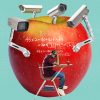In the wake of tragic shootings, security has become a top priority for schools. Many have installed cameras and metal detectors, hired resource officers, and undertaken other surveillance measures.
A National Science Foundation-funded study led by Johns Hopkins Bloomberg Distinguished Professor Odis Johnson finds, however, that this heightened scrutiny comes at a terrible cost to students.
“Instead of being used to thwart the uncommon school shooting, these surveillance measures may increase the capacity for schools to identify and punish students for more common and less serious offenses,” says Johnson, whose research analyzed data on approximately 6,000 students across the U.S.
The upshot? Rather than making schools safer, these detection measures have led to poorer outcomes for students at high-surveillance schools: more in-school suspensions, lower levels of math achievement, and less likelihood of going to college.
Johnson, who is also executive director of the Johns Hopkins Center for Safe and Healthy Schools, found that the students affected are four times more likely to be African American. They are also disproportionately likely to come from low-income and from a single-parent home.
“If we were able to reform schools to lessen the influence of social control through surveillance, disproportionate suspensions, and their impact on math test scores, young Black adolescents of both genders would be more likely to enter college,” he says.
Johnson and co-author Jason Jabbari, data analyst at Washington University in St. Louis, presented the findings at the 2021 annual meeting of the American Educational Research Association.
In addition to placing more students on the discipline track, the infrastructure of surveillance places fewer students on the STEM track and reduces college enrollment altogether.

